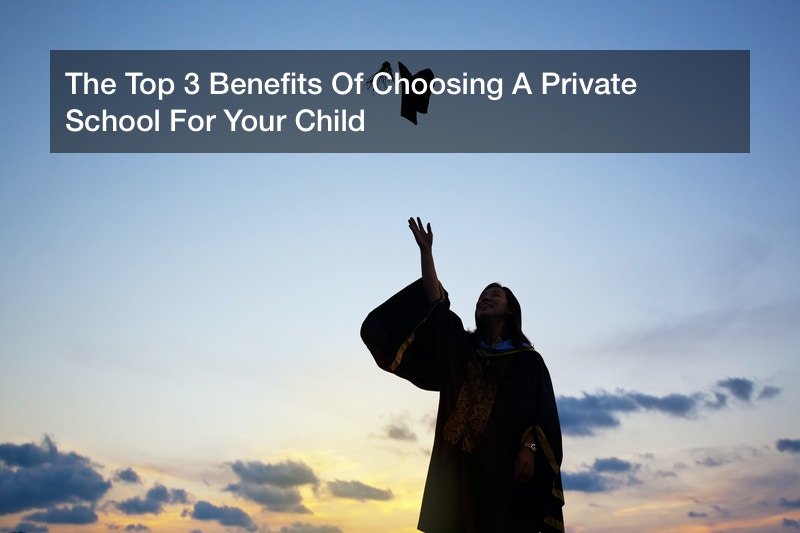
The decision of whether to send your child to a private school or a public school is a major one for any parent. Your child’s school can help determine his or her future, and it will certainly shape their young lives. Unlike public schools, private schools tend to vary; some may be focused on certain subjects over others. Some private schools may also have certain religious or cultural angles in mind. Therefore, finding the right private school requires more effort and research than sending your child to public school.
Looking into private schools can become daunting, and as a parent, you may be wondering about the benefits of private schools. Below, we’re going to look into some of the reasons why parents choose private educations for their children, as well as the advantages of private school over public schools.
1. Small Class Sizes
Many parents worry about their kids being lost in the crowd at public schools — especially if their children have learning disabilities, or other specific concerns. Public schools can contain thousands of children, with relatively small staff sizes in comparison. Across all private schools, the average number of students per school between 2011 and 2012 was 146. In fact, 87% of all private schools have fewer than 300 students in the entire school.
Smaller class sizes means that your child will have a more individualized experience, which is one of the main benefits of private schools. Teachers are able to really get to know their students, and have the flexibility to give them a more tailor-made educational experience. For that matter, children often find it easier to make friends in smaller classes. Rather than being intimidated by a vast number of classmates, children in private schools are able to get to know who they spend their days with.
2. Stricter Hiring Standards
Another one of the benefits of private schools is that they are often able to be stricter regarding their hiring standards. This is because private schools, in general, have more control over their own proceedings than public schools — subject to government supervision and intervention — do. With that being said, lots of private school teachers are hired based not only on their resumes, but their overall backgrounds. They require more than just a teaching certificate.
An estimated 60 to 80% of all private school teachers have advanced degrees. This is in part because the hiring landscape for private school jobs is competitive. Teachers that want to work at private schools know that they need to stand out. Private schools are aware of the fact that parents don’t want “just anyone” teaching and caring for their children.
3. Specialized Focuses
Perhaps one of the most prominent benefits of private schools is the specialized focuses that they often come with. For example, some private schools provide religious educations that cannot be found in public schools. Others are specifically focused on science or math. Performing arts schools are often private schools — if there is a topic that a parent wants their child to focus on in school, there is most likely a private school accommodating of that particular concentration.
One of the benefits of a child having a specific concentration in school — and therefore one of the benefits of private schools — is that a child can better prepare for his or her future. Kids who are really dedicated to the performing arts can develop their portfolios at private schools. Children who want to pursue science in college would probably be better off at science-driven private high schools. It is again, part of the more educationally nurturing environment afforded by private schools.
Yes, choosing a private school requires more time than sending your child to public school. However, a private school education is worth the education. For that matter, it can potentially set your child up for a much brighter future — and you can’t put a price on that.
